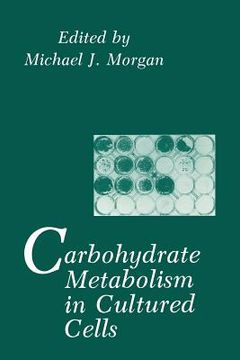Share
Carbohydrate Metabolism in Cultured Cells
Morgan, M. J. (Author)
·
Springer
· Paperback
Carbohydrate Metabolism in Cultured Cells - Morgan, M. J.
Choose the list to add your product or create one New List
✓ Product added successfully to the Wishlist.
Go to My Wishlists
Origin: U.S.A.
(Import costs included in the price)
It will be shipped from our warehouse between
Friday, July 19 and
Friday, July 26.
You will receive it anywhere in United Kingdom between 1 and 3 business days after shipment.
Synopsis "Carbohydrate Metabolism in Cultured Cells"
It is perhaps obvious to any student of Biology that the discovery of chemical processes in whole organisms has usually preceded the elucidation of the compo- nent steps. However, it is perhaps less obvious that the unravelling of the se- quences in which those chemical steps occur in living matter, of the precise mechanisms involved, and of the manner in which they are regulated, would have been achieved neither by the study of intact plants and animals nor even of extracts derived from them. Our ability to understand the nature and regulation of metabolism rests on two main premises: the postulate that life processes can indeed be validly investigated with individual cells and cell-free extracts, and the thesis that there is an essential "unity in biochemistry" (as Kluyver put it, 60 years ago) that enables events in one organism to be legitimately studied in another. Of particular utility in this latter respect has been the use of cultures of single-celled organisms, growing in defined media-especially prokaryotes, such as Escherichia coli, and eukaryotes, such as Neurospora and Sac- charomyces sp., to which both biochemical and genetical techniques could be applied. It was, of course, Pasteur's observations of bacterial fermentations that first overthrew the belief that oxygen was essential for all energy-yielding pro- cesses: his recognition that "La fermentation . . . . . c' est La vie sans air" laid the foundations of our knowledge of glycolysis.
- 0% (0)
- 0% (0)
- 0% (0)
- 0% (0)
- 0% (0)
All books in our catalog are Original.
The book is written in English.
The binding of this edition is Paperback.
✓ Producto agregado correctamente al carro, Ir a Pagar.

